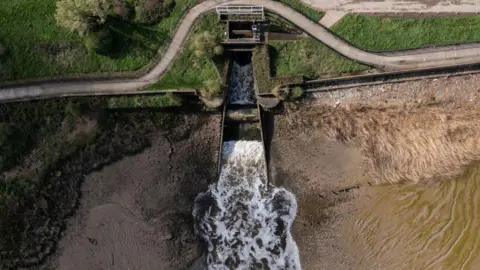**Failing Water Sector Needs Stronger Regulation, Review Says**
The independent review of the water sector in England and Wales has brought to light alarming issues regarding the quality and oversight of water services in the region. Chairing the review, former Bank of England deputy governor Sir Jon Cunliffe highlighted that the water sector is experiencing significant failures that jeopardize public trust and impact environmental safety. The review was commissioned in October when public outcry surged over alarming instances of sewage spills and ever-increasing household water bills. As the report suggests, immediate and effective reform is imperative to restore both accountability and sustainability to water services.
Among the most pressing concerns is the evident decline in public trust, largely attributed to a series of failures in infrastructure, financial management, and environmental protection. Sir Jon expressed that the situation has deteriorated with companies mismanaging their resources and failing to adhere to regulatory guidelines that aim to safeguard the interests of the public and the environment. The review’s key findings paint a picture of a system riddled with systemic issues that require comprehensive solutions rather than piecemeal changes.
In a remarkable statement, Sir Jon asserted that “There is no simple, single change, no matter how radical, that will deliver the fundamental reset that is needed for the water sector.” This comment underscores the deeply entrenched nature of the problems that affect the water industry, suggesting that both governmental strategy and regulatory frameworks have not sufficiently evolved to meet modern demands. There is a recognized critical gap in the regulatory systems designed to protect billpayers, the environment, and, ultimately, the public’s trust.
Despite the government’s previous disinterest in nationalizing the water sector, asserting that such a measure would result in exorbitant costs without actual improvements, the review emphasizes the necessity of stronger regulatory oversight. The findings imply that mere monetary assessments do not address the deeper issues plaguing the sector, which include inadequate infrastructure investment and a lack of transparency about the companies’ operational practices.
In tandem with the independent review, some water companies have already admitted to their failures, acknowledging that their inadequate sewage monitoring has further eroded public confidence. There is a palpable sense of urgency for stakeholders to adapt to the evolving landscape of environmental regulations and public expectations. Enhanced regulation, coupled with a shift in corporate governance within water companies, is essential for addressing the myriad of issues that have spiraled out of control.
Other reports associated with this topic have surfaced as well, including discussions about potential drinking water shortages due to a lack of new reservoirs, indicating a growing crisis that extends beyond sewage concerns. The overarching narrative underscores a fundamental crisis in the water industry, propelling discussions about whether it can indeed be repaired and transformed for the betterment of the public and the environment.
As the review moves forward, it calls on stakeholders—government bodies, environmental agencies, and water firms—to collaborate and contribute to an actionable strategy that prioritizes integrity, accountability, and environmental stewardship. Identified areas for improvement suggest that the path forward must involve deep-rooted reform within organizational practices and responsibilities.
The road to revitalizing England and Wales’ water sector is complex. However, with collective efforts from all involved parties, there lies the potential to cultivate a responsible, transparent, and effective water system that can serve the populace sustainably and effectively moving forward. In summary, focusing on resolute regulatory measures, acknowledging past failures, and committing to progressive change form the cornerstone of what is required to reinstate trust and reliability in the water services sector.



